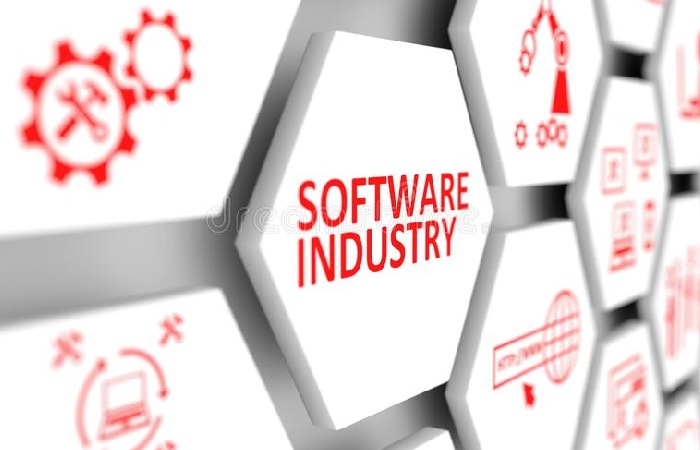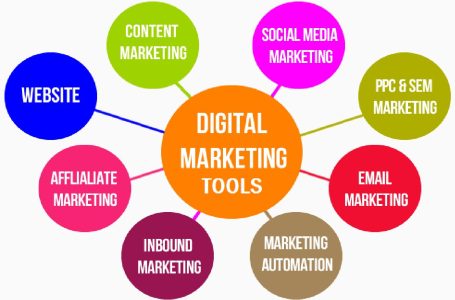In today’s digital landscape, software plays a pivotal role in transforming industries and driving operational efficiency. From healthcare to manufacturing, education to finance, businesses across diverse sectors rely on specific types of software to streamline processes, improve productivity, and gain a competitive edge. This article provides an in-depth exploration of different Industry Specific Software types commonly used in various industries.

Industrial Software
Industrial Software, or industrial control software, refers to software applications specifically designed for managing and controlling industrial processes and machinery in manufacturing and industrial environments. These software solutions automate and optimize various aspects of industrial operations, such as production, monitoring, control, and data analysis.
Industrial software is typically used in conjunction with hardware systems, such as programmable logic controllers (PLCs), human-machine interfaces (HMIs), and supervisory control and data acquisition (SCADA) systems. These software solutions improve operational efficiency, ensure safety, and enable real-time decision-making in industrial settings.
What is Industry Specific Software?

Industry specific software, or vertical or vertical market software, refers to software applications designed and developed to meet the unique needs and requirements of a particular industry or vertical market. These software solutions are tailored to address a specific industry’s challenges, workflows, and regulations.
Industry specific software goes beyond general-purpose software and provides industry-specific functionalities, features, and tools essential for businesses operating within a specific sector. These software solutions are developed by understanding the target industry’s specific processes, terminology, compliance standards, and best practices.
Characteristics of industry specific software

Industry-Focused Features
Industry specific software offers functionalities and features catering to a particular industry’s needs and requirements. This could include specialized modules, data structures, and specific industry-process workflows.
Compliance and Regulations
Many industries have specific compliance and regulatory requirements. Industry specific software is built with these regulations in mind and often includes features to help businesses maintain compliance with industry-specific standards.
Integration with Industry Systems
Industry specific software often integrates with other industry-specific systems, such as electronic health records (EHR) systems in healthcare or financial data systems in banking. Its integration allows for seamless data sharing and interoperability.
Terminology and Vocabulary
Industry specific software utilizes the terminology and vocabulary specific to the target industry. It makes it easy for users to navigate and understand the software, as it aligns with their industry-specific language.
Industry specific software includes electronic medical records (EMR) systems in healthcare, construction project management software in the construction industry, and property management systems in real estate. These software solutions are tailored to meet their respective industries’ specific needs and challenges, offering relevant and essential functionalities for businesses operating within those sectors.
Industry Specific Software And Their Uses In Different Sectors

Healthcare Industry
- Electronic Medical Records (EMR) software: Manages patient health records, appointments, and medical billing.
- Medical Imaging Software: Analyzes and stores medical images such as X-rays, MRIs, and CT scans.
- Practice Management Software: Handles administrative tasks like scheduling, billing, and patient communication.
Manufacturing Industry
- Computer-Aided Design (CAD) software: Creates and modifies digital designs for products and components.
- Enterprise Resource Planning (ERP) software: Manages inventory, production, and supply chain processes.
- Quality Management Software (QMS): Ensures adherence to quality standards and regulatory compliance.
Education Industry
- Learning Management System (LMS) software: Delivers and manages online courses, assessments, and student performance tracking.
- Classroom Management Software: Facilitates classroom organization, student monitoring, and collaboration.
- Student Information System (SIS) software: Maintains student data, including attendance, grades, and schedules.
Financial Industry
- Accounting Software: Handles bookkeeping, financial reporting, and tax preparation.
- Trading Platforms: Enables buying and selling financial instruments like stocks, bonds, and derivatives.
- Risk Management Software: Assesses and manages financial risks, including credit risk and market risk.
Retail Industry
- Point of Sale (POS) software: Processes sales transactions, manage inventory, and tracks customer data.
- Inventory Management Software: Optimizes stock levels, automates reordering, and monitors product availability.
- Customer Relationship Management (CRM) software: Manages customer interactions, loyalty programs, and marketing campaigns.
Hospitality Industry
- Property Management System (PMS) software: Handles hotel reservations, check-ins, room assignments, and guest billing.
- Restaurant POS software: Streamlines order taking, table management, and payment processing.
- Event Management Software: Assists in planning and managing events, including registrations and ticketing.
Construction Industry:
- Construction Project Management Software: Facilitates project planning, scheduling, resource allocation, and collaboration.
- Building Information Modeling (BIM) software: Creates digital 3D models of buildings for design, analysis, and construction.
- Construction Estimating Software: Calculates project costs, generates quotes, and tracks expenses.
Legal Industry
- Legal Practice Management Software: Manages case and client information, tracks billable hours, and streamlines document management.
- eDiscovery Software: Helps discover and analyze electronic data for legal proceedings.
Agriculture Industry
- Farm Management Software: Assists in crop planning, field mapping, inventory tracking, and equipment management.
- Livestock Management Software: Tracks animal health records, breeding, and nutrition management.
Transportation and Logistics Industry
- Transportation Management System (TMS) software: Optimizes freight transportation, routing, and shipment tracking.
- Fleet Management Software: Manages vehicle maintenance, fuel usage, driver scheduling, and compliance.
Real Estate Industry
- Property Management Software: Automates rental property management tasks, including lease management, tenant communication, and maintenance tracking.
- Real Estate CRM Software: Facilitates lead management, client relationship tracking, and property listing management.
Nonprofit Sector
- Donor Management Software: Helps manage donor information, fundraising campaigns, and donation tracking.
- Grant Management Software: Streamlines the grant application process, tracks fund allocation, and monitors project progress.
Energy Sector
- Renewable Energy Management Software: Monitors and optimizes the performance of renewable energy systems, such as solar and wind farms.
- Utility Billing Software: Calculates and manages customer utility bills, tracks consumption, and supports billing operations.
Hospitality and Tourism Industry
- Hotel Property Management System (PMS): Manages hotel operations, including reservations, room inventory, guest profiles, and billing.
- Tour Operator Software: Assists in organizing and managing tours, bookings, itineraries, and customer communications.
Entertainment and Media Industry
- Digital Asset Management (DAM) Software: Organizes and manages digital media assets, such as images, videos, and documents.
- Broadcast Management Software: Streamlines broadcast scheduling, content management, and advertising placement.
Insurance Industry
- Insurance Policy Management Software: Facilitates policy administration, underwriting, claims processing, and policyholder management.
- Actuarial Software: Performs complex calculations and statistical analysis for risk assessment and premium pricing.
Government Sector
- Constituent Relationship Management (CRM) Software: Manages citizen interactions, service requests, and government programs.
- Tax Preparation Software: Assists in preparing and filing tax returns for individuals and businesses.
- E-commerce Industry
- E-commerce Platforms: Enables online selling, order management, and inventory control for online retailers.
- Customer Review Management Software: Facilitates collection, analysis, and response to customer reviews and feedback.
Conclusion
These are a few examples of software used in different industries to address specific needs and challenges. As a result, software solutions tailored to each industry help optimize operations, improve efficiency, and enhance decision-making to drive success in their respective sectors.
These software solutions cater to the specific needs of each industry, addressing challenges and optimizing operations. By leveraging industry specific software, organizations can enhance efficiency, productivity, and customer satisfaction, ultimately driving success in their respective sectors.





